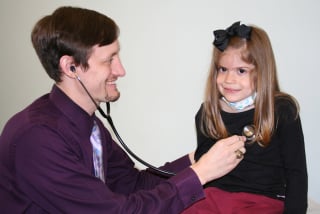2 weeks
81405
$500
Familial hypercholesterolemia has an estimated prevalence of 1 in 200-250 individuals, and copy number variants in LDLR account for up to 10% of cases. This condition is associated with significant elevations in low-density lipoprotein (LDL) cholesterol. In addition, total cholesterol is typically increased (usually greater than 300 mg/dL in untreated individuals) with normal to slight elevations in triglycerides. Familial hypercholesterolemia is associated with increased risk of premature cardiovascular disease, specifically atherosclerosis, and symptoms include angina, heart attack, and rarely stroke. Other findings include a hazy ring along the outer rim of the iris known as corneal arcus and xanthomas, particularly of the hands and Achilles tendon.
Molecular testing is useful to confirm the diagnosis and to identify the disease-causing mutations within a family to allow for carrier testing.
multiplex ligation-dependent probe amplification (MLPA)
Sequencing of the LDLR gene will detect mutations in approximately 90% of individuals with LDLR-related familial hypercholesterolemia. Of those with a normal sequencing result, approximately 10% will have a deletion or duplication identified by MLPA.
The preferred sample type is 3-5 ml of peripheral blood collected in an EDTA (purple top) tube. Extracted DNA and saliva are also accepted for this test. Saliva samples must be submitted in an approved saliva kit. Contact the lab to receive a saliva kit or to have one sent to your patient.
The specimen should be kept at room temperature and delivered via overnight shipping. If shipment is delayed by one or two days, the specimen should be refrigerated and shipped at room temperature. Do not freeze the specimen. Samples collected on Friday can be safely designated for Monday delivery.
Call our laboratory at 1-800-473-9411 or contact one of our Laboratory Genetic Counselors for assistance.
Robin Fletcher, MS, CGC
Falecia Thomas, MS, CGC
Alex Finley, MS, CGC
